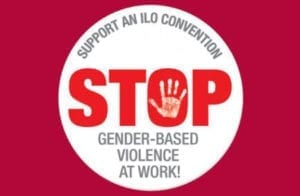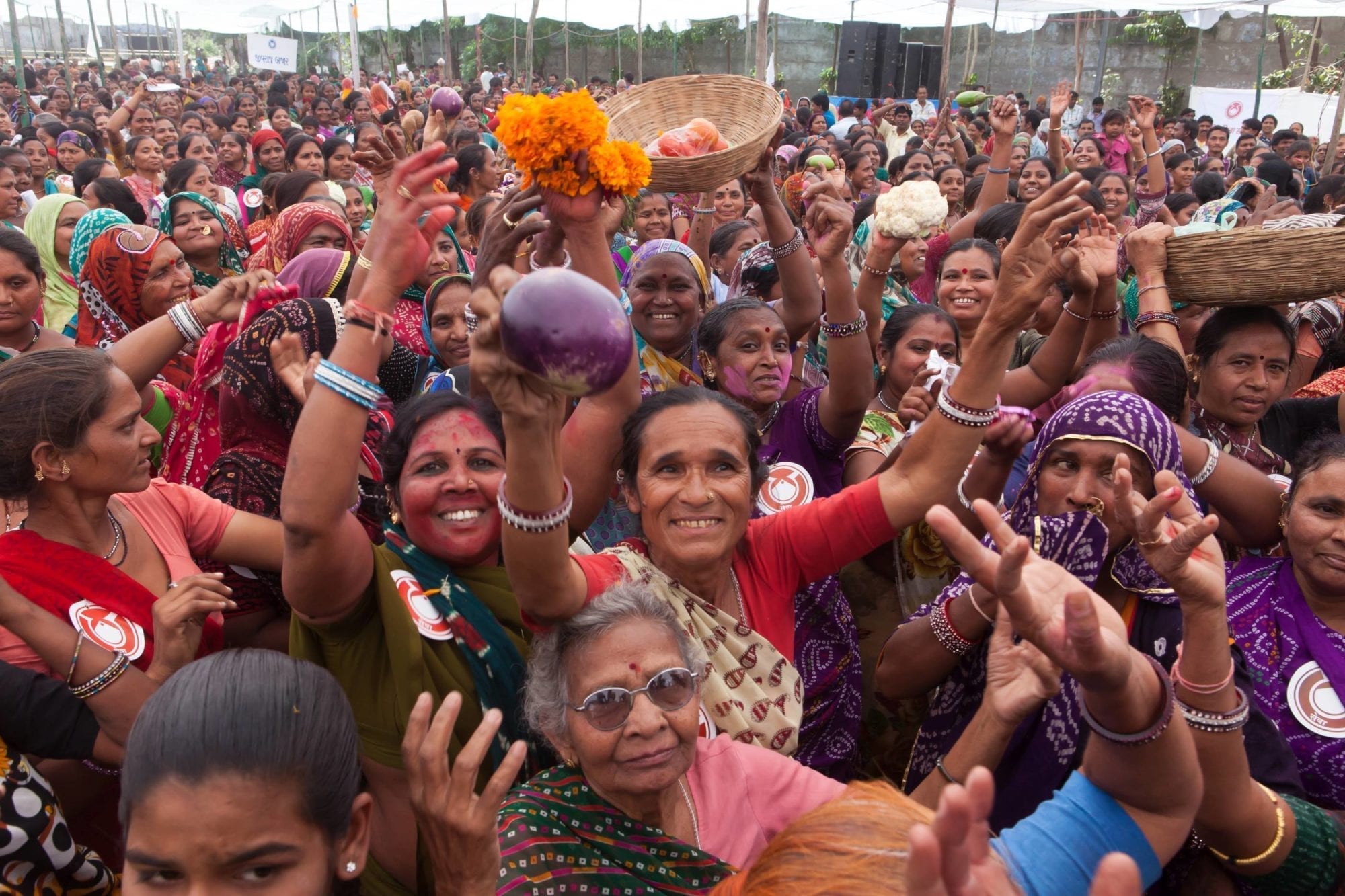Hundreds of high-level government delegates at the Commission on the Status of Women (CSW) meeting at the United Nations in New York this month will for the first time discuss women’s economic empowerment and the role of labor unions as core to achieving women’s rights.
“Women’s Economic Empowerment in the Changing World of Work,” the topic of the March 13–24 meeting, represents a huge milestone for working women around the globe in achieving recognition of their workplace struggles by the world’s human rights body—and one that worker rights organizations like the International Trade Union Confederation (ITUC) and Solidarity Center have long championed.
Simultaneously, the global union movement, together with the Solidarity Center, is bringing together some 200 labor activists from around the world to New York for workshops and a four-day women’s leadership training.
 Labor and allied sessions include the Solidarity Center workshop on eliminating gender-based violence at work on March 13 and a discussion on the “Impact of Corporate Power on Women’s Economic Empowerment.” The latter event, sponsored by the Association of Women in Development (AWID) and Solidarity Center, is based on a joint 2016 report, “Challenging Corporate Power for Gender Justice: Highlights from a Cross-Movement Dialogue,” which outlines how national and transnational corporations can exploit women and other marginalized people and offers insights into strategies for resistance.
Labor and allied sessions include the Solidarity Center workshop on eliminating gender-based violence at work on March 13 and a discussion on the “Impact of Corporate Power on Women’s Economic Empowerment.” The latter event, sponsored by the Association of Women in Development (AWID) and Solidarity Center, is based on a joint 2016 report, “Challenging Corporate Power for Gender Justice: Highlights from a Cross-Movement Dialogue,” which outlines how national and transnational corporations can exploit women and other marginalized people and offers insights into strategies for resistance.
Concrete Achievements through the UN Process
The Solidarity Center has long focused on making working women’s issues a priority for UN bodies and, most recently, had its recommendations on employment, gender-based-violence and other workplace abuses included in a Committee on the Elimination of Discrimination against Women (CEDAW) report on behalf of Honduras.
Issued in November, CEDAW’s report, “Concluding Observations on the Combined Seventh and Eighth Periodic Reports of Honduras,” incorporates Solidarity Center recommendations to address the persistent gender wage gap; the lack of regulations protecting women from exploitative working conditions, like domestic work; and severe health and safety dangers for women agricultural workers. The UN formed CEDAW in 1979 following CSW’s recommendation that a single entity champion international standards on the equal rights of men and women.
Solidarity Center and Global Labor Help Shape CSW Document
The Solidarity Center and global unions contributed to a document on women’s empowerment at work that the CSW will discuss and amend before approving at the end of the March meeting. They urged the CSW to acknowledge the economic impact of globalization on women workers’ wages and the socioeconomic conditions fueling “the accelerated feminization of poverty.”
Crucially, global unions are recommending the CSW “recognize the importance of trade unions in addressing persistent economic inequalities,” in closing the gender wage gap, the gap between minimum and living wages, and social protection gaps.
The Solidarity Center participated in crafting the draft document throughout a yearlong process in advance of the CSW meeting. In 2016, the Solidarity Center and ITUC were among 25 participants at an Expert Group Meeting convened by UN Women to discuss and prepare the first draft. At the meeting, the Solidarity Center presented the paper, “Women’s Labor Rights and Economic Power, Now and in the Future.”
Created in 1946, the CSW is the main global intergovernmental body exclusively dedicated to the promotion of gender equality and the empowerment of women and is part of the UN Economic and Social Council (ECOSOC).
Watch the Solidarity Center website for coverage of the global union events and follow the action at our Facebook page and on Twitter @SolidarityCntr.

